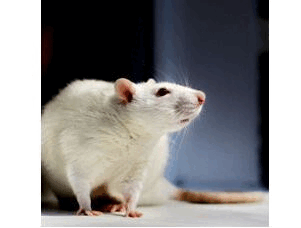EFFECTS OF THE ESSENTIAL OIL OF DRIED FRUITS OF PIPER GUINEENSE (PIPERACEAE) ON NEUROLOGICAL SYNDROMES ASSOCIATED WITH CEREBRAL MALARIA IN MICE
Keywords:
Cerebral malaria, Essential oil, Piper guineense, Plasmodium falciparum, SHIRPAAbstract
Background: Cerebral Malaria (CM), is associated with neurological syndromes characterized by cognitive and neurobehavioral abnormalities. Piper guineense Schum and Thonnis known to possess anti-oxidant and central nervous system activities. In this study, effects of essential oil of P. guineense (EOPG) dried fruitson selected behavioral and functional indices in mice with cerebral malaria was evaluated.
Method: Mice with confirmed CM, following intraperitoneal inoculation with 1x107 Plasmodium berghei ANKA parasitized blood in 0.2 ml of normal saline, were randomly allocated into 14 groups (n=12), namely, parasitized control, quinine control, EOPG graded doses (6.25, 12.5, 25, 50, 100 and 150mg/kg), and combination of quinine and EOPG graded doses. Quinine was administered at a dose of 20 mg/kg stat, then 10 mg/kg twice daily for next two days, while EOPG was administered once daily for 3 days, beginning from day 5 post inoculation. Non-parasitized (n=12) and parasitized controls were treated with the vehicle (5% Tween 80 in distilled water). Parasitemia, weight, survival and behavioral assessment using SHIRPA protocol were taken daily.
Results: EOPG showed anti-plasmodial activity in a dose dependent manner, significantly mitigated mortality rate at higher doses (100 and 150mg/kg), and exhibit dose dependent central nervous system protective effects. Also, except for quinine/6.25 mg/kg EOPG, 100% mortality was observed with combination groups, suggesting a potential to precipitate toxicity.
Conclusion: The study concluded that EOPG possesses antimalarial and central nervous system protective effects and may therefore serves to mitigate neurological syndrome in cerebral malaria.

Peer Review History:
Received: 5 December 2022; Revised: 9 January; Accepted: 25 February 2023; Available online: 15 March 2023
Academic Editor: Dr. Jennifer Audu-Peter , University of Jos, Nigeria, drambia44@gmail.com
, University of Jos, Nigeria, drambia44@gmail.com
Reviewers:
 Dr. Rima Benatoui,Laboratory of Applied Neuroendocrinology, Department of Biology, Faculty of Science, Badji Mokhtar University Annaba, Algeria. benattouiryma@gmail.com
Dr. Rima Benatoui,Laboratory of Applied Neuroendocrinology, Department of Biology, Faculty of Science, Badji Mokhtar University Annaba, Algeria. benattouiryma@gmail.com
 Dr. Nuray Arı, Ankara University, Turkiye, ari@ankara.edu.tr
Dr. Nuray Arı, Ankara University, Turkiye, ari@ankara.edu.tr
Downloads

Published
How to Cite
Issue
Section

This work is licensed under a Creative Commons Attribution-NonCommercial 4.0 International License.









 .
.